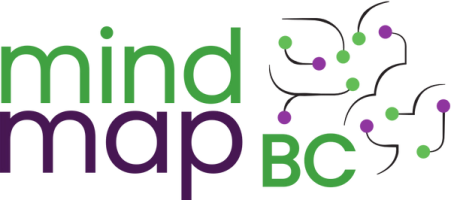Mountain View Counselling
Summary
Relationship counselling
Individual counselling
Sliding Scale Available
LGBQ+ Affirming
Trans Affirming
2S/LGBTQ+ Affirming
Online resource
Remote services
I'm a queer Registered Clinical Counsellor, and I just started my online counselling private practice, Mountain View Counselling. I provide individual and relationship counselling to LGBTQIA2S+ adults (18+) who are working through life and identity transitions as well as those who are going through faith transitions. I work with people who are asking questions about who they are, who they want to be, and how they can integrate their past (the good and the bad) into their future. My goal is for clients accept every stage of their identity exploration, celebrate all of the nuances of their identity, and to learn to face daily struggles with growing confidence.
As a trauma-informed, strengths-based counsellor, I focus on identifying and leveraging your unique personal resources so that future struggles can be managed in the most effective way possible.
Please note that all sessions are offered virtually.
Want to learn more about this service’s work with Two-Spirit, trans, LGBQ+ people?
We invite all service providers listed on MindMapBC to answer the following questions. These questions were developed in collaboration with community members, researchers, and mental health and other service providers. They're intended to help us understand what a service provider or organization is doing to affirm and support sexual and gender diverse service users.
See below for responses for this listing.
Want to learn more about our screening questions and filters?
Do you collect and use preferred names (rather than legal names) for all communications?
—Yes
I want to honor clients who have chosen to use names that are not recognized legally but that reflect their gender identity.
Are the forms used in your practice inclusive of various sexual orientations and gender identities (e.g., opportunities to fill in pronouns, etc.)?
—Yes
I ask clients for their pronouns and discuss sexual orientation during intake; starting off by normalizing these conversations hopefully sets clients at ease and lets them know this is an affirming space.
Are you and your colleagues aware of what specific barriers may exist for trans individuals accessing your services?
—Yes, to some extent
I would love to learn more; I am primarily aware that trans clients generally and historically have negative experiences with health providers. This has led to people hiding parts of themselves for the sake of care or else avoiding necessary care entirely.
Do you offer Indigenous 2S/LGBTQ+ specific resources, for example Indigenous Elders or Knowledge Keepers?
—No
I am learning to be culturally safe for Indigenous clients, but I am not yet connected with Elders or Knowledge Keepers.
Are you and your colleagues comfortable asking relevant questions about gender identity and sexual orientation?
—Yes
Yes, and this includes polyamory options for relationship counselling.
Are you and your colleagues aware of what specific barriers may exist for LGBQ individuals accessing your services?
—Yes
Similarly to what I stated above re: trans clients, I know LGBQ people have often had to hide or minimize parts of their life in order to feel safe and access health care.
Do you and your colleagues ask clients about pronouns and use them appropriately?
—Yes
Always; this is basic courtesy and respect.
Are you and your colleagues aware of what specific barriers may exist for Two-Spirit, queer, or trans Indigenous individuals accessing your services?
—Yes
Intersectional discrimination means that queer Indigenous folks experience significant systemic and personal oppression that makes accessing mental health dangerous at worst and suspicious at best.
Do you and your colleagues have experience working with people who identify as living with a disability or chronic illness? Please tell us more about your experience and any training you have received.
—Yes, to some extent
My other job at EFry is as a counsellor for women-identified folks who are at the intersection of substance use, homelessness, and the criminal justice system; as such, many have disabilities and/or chronic illnesses. However, I have not been trained in this specifically.
Can you and your colleagues distinguish gender/identity dysphoria/distress from other mental health conditions that are unrelated to gender dysphoria or distress?
—Yes
I believe it is essential to understand the ways in which mental health conditions overlap (and don't) with gender dysphoria; primarily this means, to me, not assuming anything but treating each client as unique.
Does your practice have gender-neutral washrooms?
—Not applicable (please explain why this is not applicable)
My practice is entirely online.
Are there clear anti-discrimination policies that include gender identity, gender expression, and sexual orientation in your organization or practice?
—No
I have marketed myself specifically to LGBTQIA2S+ clients, and didn't even think about needing an anti-discrimination policy! I'll change that.
Are all individuals involved in service provision actively engaged in decolonizing their practices and/or organization? If yes, please type below what actions you and/or your organization are taking.
—Yes, to some extent
I have participated in Fraser Health's Indigenous Cultural Safety training, and I make land acknowledgments a regular part of gatherings. I would like to learn more.
Are all individuals involved in service provision actively engaged in anti-racist practices, policies, and systems in their care model?
—Yes, to some extent
I work to stay up to date with BIPOC voices via books and podcasts and to challenge areas where my white privilege and internalized racism are at play. I would love to learn more here too.
Last updated: December 20, 2022
Request changes —

